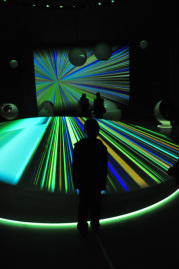| Plan ahead if you are looking for fun activities that take place between now and May!
|
- IMSA Funshops in February and March for students in grades 3-6
- NIU STEM Saturdays in Dekalb or Naperville for ages 8 and up
- Waubonsee Community College Spring Break Camps for ages 4-14
Have you seen ... ?
- Researcher Kyung Hee Kim explores the question: "Underachievement and Creativity: Are Gifted Underachievers Highly Creative?" and suggests remedies to help reverse patterns of underachievement for students who are gifted, highly creative, or both.
- Gail Post, PhD psychologist, in blog posts collected here provides some useful advice about helping gifted students with test anxiety, understanding procrastination, advocating for your G/T child, and planning ahead for college during the high school years.
- This summary of a #gtchat about gifted education and middle school provides some insight from educators and experts about what makes these years so unique for your G/T child's emotional, social, and academic development.



 RSS Feed
RSS Feed
